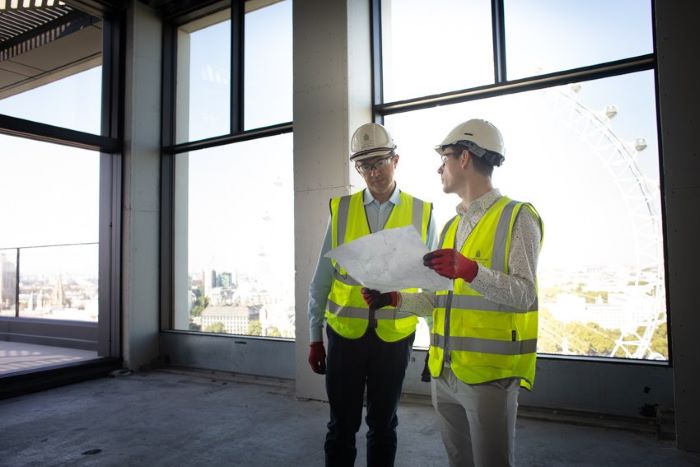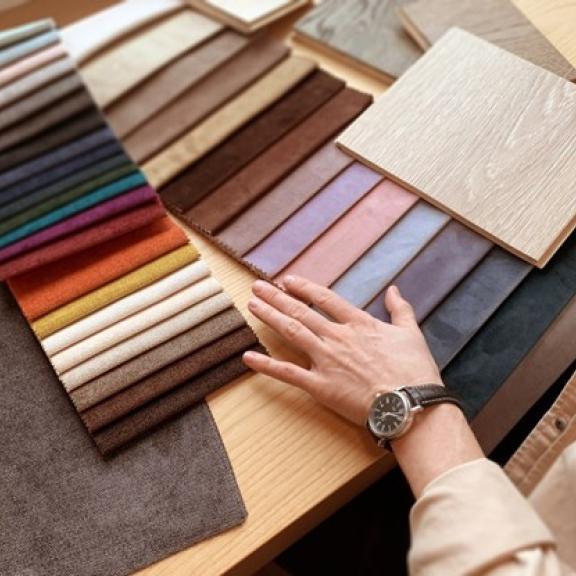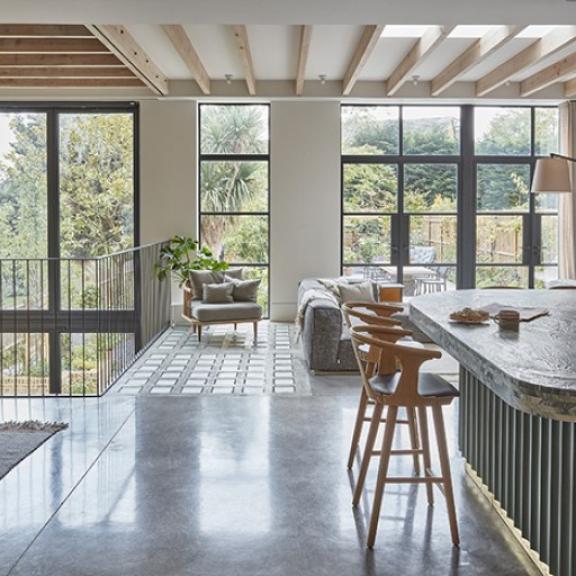The Importance of Collaboration In Difficult Times - Partners
As part of our series on collaboration we examine why partner relationships could help during economic downturns.

As lockdown continues many designers are facing difficult times and a shortage of work. We have spoken to two BIID members for advice on working with partners and how those relationships can help you to grow your business.

Susie Rumbold, BIID Registered Interior Designer, Founder of Tussuto Interiors, Susie has 25 years of experience designing residential and commercial projects.
“As a practice we have always relied heavily on other construction industry professionals to recommend us to their clients, especially project managers and architects. If you have a successfully completed a project as part of a professional team, those consultants know they can recommend you to their clients with confidence. You do a good job and it reflects well on them. Similarly, whenever we can, we put forward people who are efficient, deliver on time and are good pragmatic team players, which then makes us look professional and in control. Its great fun working with a trusted crew, and it can feel a bit like “putting the band back together”. Plus it’s a real accolade when another professional is so impressed by what you do that they want to work with you again."
Susie's top tips for building and sustaining these relationships are:
- Look after your construction professional relationships. Pick up the phone every few months if you have not spoken to them. The occasional lunch or coffee to chat about the current market and what they are working on can work wonders too.
- Ask them to write you a testimonial and offer to write one for them as well.
- If you do propose a colleague for a project make sure you tell them you have done it and to expect a call.
- Offer to do “Finishing packages” for architects. The architect may have specified a tiled floor but not know which tile would look best. It can be a great way to get a foot in the door with their clients.“

Lori Pinkerton - Rolet, a BIID Registered Designer, Director at Park Grove Design, Lori has almost 30 years of experience spanning North America, Europe and most recently Africa.
"The business relationships designers tend to develop are of course clients and potential clients, but interaction with other construction-related professionals, on a regular basis, is also critical to growth. While your expertise will be validated on every project, working collaboratively, particularly in challenging situations, will elevate you in the minds of people putting together new teams for contracts. These relationships, whether project managers, architects or quantity surveyors can result in a great deal of additional business coming your way as long as you approach projects in a truly collaborative manner. My own company has not yet cracked this with M & E consultants, but we’ve not given up trying! Plus, like being a Member of the BIID, it’s satisfying to feel part of a larger group of professionals, where you can ask a quick question or get a steer on some additional information you require."
Lori's top tips for building these relationships are:
- At trade conferences don’t just look out for potential clients, but start conversations and exchange cards with other industry professionals as well. Aim for a minimum of two new solid contacts from each event.
- Start a database of industry professionals and arrange a schedule to contact them on a rota basis to either start or further develop these relationships.
- Suggest industry colleagues for project roles anytime this arises in meetings…even if you are not being directly asked to provide this. We’ve had other professionals brought into projects this way and received reciprocal business as a result.
- Offer free ‘quick win’ support to the team. For example, if the project manager is time constrained and you’ve been tracking a particularly thorny issue, offer to share your time line or excerpts of correspondence to assist (always bearing in mind data protection, etc.) There will be many opportunities to lend support with little effort and ultimately it’s in your interest to do as long as you: 1) don’t pick up any liabilities in the process, or 2) allow it to be expected in the future. While it takes you little time to offer this kind of assistance, it creates a great deal of goodwill.
Read our article on The Importance of Collaboration in Difficult Times - Suppliers for more advice on how collaborating could help you. Don't forget to check our supplier directory if you are looking for new supplier relationships.
Explore the latest, member-exclusive, templates designed to make your life easier.
What happens to material samples once a project comes to an end? Discover Second Life Samples with Swatchbox.
With the launch of the new residential category for this year's awards, get inspired by these award-winning homes
Explore new resources from the BIID. Seeing a padlock? Just login or become a member to view.
With the launch of the new residential category for this year's awards, get inspired by these award-winning homes
Explore new resources from the BIID. Seeing a padlock? Just login or become a member to view.




